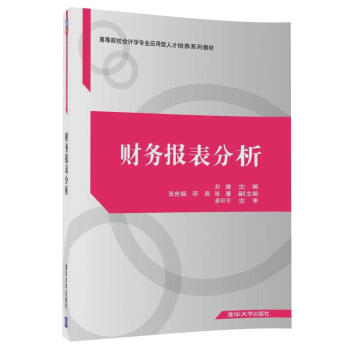![会计学:数字意味着什么(第9版,双语教学版) [Accounting: What the Numbers Mean]](https://pic.windowsfront.com/11908602/570bae45Neff0dad0.jpg)

具体描述
编辑推荐
适读人群 :适合于会计专业的双语课教材,也适合需要使用财务报表信息的非会计专业的读者。《会计学——数字意味着什么》第9版做了全面更新,反映了业界动态,补充了大量内容,并配套开发了一系列优秀的学习工具。全书言简意赅,条理清楚,习题丰富,读者不仅能够掌握会计学的基础知识,而且能够读到原汁原味的地道专业英语。此“双语教学版”非常适合高校本科生的双语教学课。
《会计学——数字意味着什么》第9版有两大特点:
角度独特:从会计信息使用者的角度出发,旨在帮助他们听懂“商业语言”,理解会计信息,读懂财务报表。
言简意赅:相比于百科全书式的、大部头会计学教材,本书尽量忽略数学、技术细节,更强调会计的基础知识。
内容简介
《会计学——数字意味着什么》(第9版,双语教学版)是一本让读者熟悉和理解公司和其他经济组织财务报告的会计用书。《会计学——数字意味着什么》的目的不是让读者成为编制财务报表的行家,而是让读者略过会计流程的技术细节,了解会计数字之间的关系。因此,近30年来,《会计学——数字意味着什么》英文原版一直是美国会计学入门课程用量颇大的四本书之一。《会计学——数字意味着什么》包括财务会计和管理会计两个部分,共16章。具体章节如下:会计的今与昔;财务报表及会计概念与原则;财务报表数据的基本解释;簿记过程和会计事项分析;流动资产的会计处理和列示;不动产、厂房、设备及其他非流动资产的会计处理和列示;负债的会计处理和列示;财务报表分析;成本计划;成本控制等。
作者简介
David H. Marshall,is Professor of Accounting Emeritus at Millikin University.He taught at Millikin, a small, independent university located in Decatur, Illinois, for25 years. He taught courses in accounting, finance, computer information systems, and business policy, and was recognized as an outstanding teacher. The draft manuscript of this book was written in 1986 and used in a one-semester course that was developed for the non-business major. Subsequently supplemented with cases, it was used in the business core accounting principles and managerial accounting courses. Concurrently, a one-credit hour accounting laboratory taught potential accounting majors the mechanics of the accounting process. Prior to his teaching career, Marshall worked in public accounting and industry and he earned an MBA from Northwestern University. Professor Marshall’s interests outside academia include community service, woodturning, sailing, and travel.Wayne W. McManus,makes his home in Grand Cayman, Cayman Islands, BWI, where he worked in the private banking sector for several years and is now a semiretired consultant. He maintains an ongoing relationship with the International College of the Cayman Islands as an adjunct Professor of Accounting and Law and as a member of the College’s Board of Trustees. McManus now offers the Cayman CPA Review course through the Financial Education Institute Ltd. and several professional development courses through the Chamber of Commerce. He earned an M.S. in accounting from Illinois State University, an MBA from the University of Kansas, a law degree from Northern IllinoisUniversity, and a master’s of law in taxation from the University of Missouri-Kansas City. He serves as a director of Endeavour Financial Corp. (EDV on the TSX exchange). He is an active member of the Cayman Islands Society of Professional Accountants and the local chapter of the CFA Institute. Professor McManus volunteers as a “professional” Santa each December, enjoys travel, golf, and scuba diving, and is an audio/video enthusiast.
Daniel F. Viele,is Professor of Accounting and currently serves as Associate Vice President for Academic Affairs at Webster University. He teaches courses in financial, managerial, and cost accounting, as well as accounting information systems. He has developed and taught numerous online graduate courses and for his leadership role in pioneering online teaching and learning, the university presented him with a Presidential Recognition Award. Professor Viele’s students and colleagues have also cited him its highest honor—the Kemper Award for Teaching Excellence. Prior to joining Webster University in 1998, he served as a systems consultant to the graphics arts University with Professor Marshall. Professor Viele holds an M.S. in Accounting from Colorado State University and has completed the Information Systems Faculty Development his dedication to teaching and innovative use of technology and in 2002 Webster awarded industry, and his previous teaching experience includes 10 years at Millikin Institute at the University of Minnesota and the Advanced Information Systems Faculty Development Institute at Indiana University. He is a member of the American Accounting Association and the Institute of Management Accountants where he has served as President of the Sangamon Valley Chapter and as a member of the National Board of Directors. Professor Viele enjoys sports of all kind, boating, and a good book.
目录
会计的今与昔财务报表及会计概念与原则
财务报表数据的基本解释
簿记过程和会计事项分析
流动资产的会计处理和列示
不动产、厂房、设备及其他非流动资产的会计处理和列示
负债的会计处理和列示
所有者权益的会计处理和列示
利润表和现金流量表
公司治理、报表附注和其他财务信息
财务报表分析
管理会计及本—量—利之间的关系
成本会计和报告系统
成本计划
成本控制
为决策而进行的成本分析
结束篇:会计的未来
附录:英特尔公司2008年年报摘录
索引
精彩书摘
The liquidity measures of working capital, current ratio, and acid-test ratio were discussed in Chapter 3. One point that deserves reemphasis is the effect of the inven- tory cost-flow assumption on working capital. The balance sheet carrying value of inventories will depend on whether the weighted-average, FIFO, or LIFO assumption is used. In periods of rising prices, a firm using the FIFO cost-flow assumption will report a relatively higher asset value for inventories than a similar firm using the LIFO cost-flow assumption. Thus, even though the firms may be similar in all other respects, they will report different amounts of working capital, and they will have different cur- rent ratios. Therefore, a direct comparison of the liquidity of the two firms by using these measures is not possible. To ease this reporting difficulty, many firms using the LIFO method will disclose a LIFO reserve amount in the explanatory footnotes sec- tion of their annual reports. The LIFO reserve is the difference between the inventory valuation as reported under the LIFO basis and the amount that would have been reported under the FIFO basis. For example, the Eastman Kodak Company disclosed a LIFO reserve of $291 million in its 2005 annual report, which would have increased the firm’s reported inventory by 26%. Not surprisingly, Kodak switched from LIFO to the weighted-average inventory method (which for them approximates FIFO) on January 1, 2006, and thus has been able to report substantially higher inventory values on subsequent balance sheets. Of course, the differences caused by the LIFO–FIFO selection are often less dramatic for firms operating in other industries, as suggested by the LIFO reserves disclosed in 2008 by General Motors (9% of reported inventory) and General Electric (only 5%). Intel Corporation’s inventories are reported on a basis that approximates FIFO (see page 695 in the appendix).Even more significant to suppliers or potential suppliers/creditors of the firm than the aggregate working capital or liquidity ratios is the firm’s current and recent pay- ment experience. Suppliers/creditors want to know whether or not the firm is paying its bills promptly. One indication of this is whether all cash discounts for prompt payment (e.g., for payment terms of 2/10, net 30) are being taken. Information about current and recent payment practices can be obtained by contacting other suppliers or credit bureaus and by reviewing Dun & Bradstreet reports (see Business in Practice—Credit Rating and Financial Analysis Services).
……
前言/序言
Welcome to the Ninth Edition of Accounting: What the Numbers Mean. We are confident that this text and supplemental resources will permit the achievement of understanding the basics of financial reporting by corporations and other enterprises.
Accounting has become known as the language of business. Financial statements result from the accounting process and are used by owners/investors, employees, creditors, and regulators in their planning, controlling, and decision-making activities as they evaluate the achievement of an organization’s objectives. Active study of this text will allow you to acquire command of the language and help you become an informed user of accounting information.
Accounting issues are likely to touch the majority of career paths in today’s economy. Students whose principal academic interests are not in accounting, but who are interested in other areas of business or nonbusiness areas, such as engineering, behavioral sciences, public administration and prelaw programs, will benefit from the approach used in this book. Individuals aspiring to an MBA degree or other graduate programs that focus on administration and management, who do not have an undergraduate business degree, will benefit from a course using this text.
Accounting: What the Numbers Mean takes the user through the basics: what accounting information is, how it is developed, how it is used, and what it means. Financial statements are examined to learn what they do and do not communicate, enhancing the student’s decision-making and problem-solving abilities from a user perspective. Achieving expertise in the preparation of financial statements is not an objective of this text. In short, we have designed these materials to assist those who wish to learn “what the numbers mean” without concentrating on the mechanical aspects of the accounting process.
Best wishes for successful use of the information presented here.
David H. Marshall
Wayne W. McManus
Daniel F. Viele
用户评价
我是一名对管理会计和财务报告有着浓厚兴趣的学生,之前接触过一些会计课程,但总感觉理论与实践之间存在一些脱节。这本书的“第9版”预示着它包含了最新的会计信息和教学方法,而“双语教学版”则为我提供了一个绝佳的学习机会,能够将中文的学习与英文的专业术语和文献对照起来,从而加深理解,提升跨文化沟通能力。我尤其关注书中是否对企业在不同经济环境下的会计处理方式有深入的探讨,例如,当经济下行或面临特定行业挑战时,企业如何通过会计手段来应对和披露。此外,我也希望书中能够提供一些关于财务分析的进阶内容,不仅仅是讲解会计准则,更能引导读者如何利用这些准则和信息来做出更明智的经营决策。我期待这本书能成为我构建财务智慧的坚实基石,帮助我更好地理解企业运营的深层逻辑。
评分这本《会计学:数字意味着什么(第9版,双语教学版)》真是太及时了,我最近正纠结于如何系统地理解公司的财务报表。作为一名非会计专业的学生,我总觉得那些数字背后隐藏着太多信息,却不得其法。之前尝试过一些中文的会计入门教材,总感觉理解上有些生涩,尤其是一些专业术语的翻译,有时会让人费解。听说这本教材是双语的,这简直是我的救星!我一直相信,直接阅读原文能帮助我更准确地把握概念的精髓,同时对照中文解释,又能及时扫清理解上的障碍。我尤其期待书中对会计基本原则的解释,比如权责发生制和收付实现制,还有资产负债表、利润表和现金流量表这三大报表的相互联系。我希望这本书能像一位经验丰富的老师,循序渐进地引导我,让我不再对财务数字感到畏惧,而是能真正理解它们所代表的经济含义,并能运用这些知识来分析公司的经营状况。即使是简单的交易,一旦被记录在财务报表中,它们所蕴含的信息量也相当惊人,我希望能从这本书中学会如何“解读”这些信息。
评分作为一名长期关注公司治理和投资者关系的观察者,我深切体会到财务透明度和准确性的重要性。我了解到《会计学:数字意味着什么》这本书在行业内被广泛认可,而“第9版,双语教学版”更是让我看到了它与时俱进的特点。我希望这本书能够深入浅出地解释会计信息在信息不对称环境下,如何作为一种有效的沟通工具,连接企业与外部利益相关者,如股东、债权人、监管机构等。我特别期待书中能够探讨不同会计方法对公司价值评估的影响,以及如何识别和防范潜在的财务操纵行为。同时,双语教学的模式,也为我提供了学习如何阅读和理解英文财务报告的机会,这对于我理解全球范围内的企业财务信息至关重要。我希望通过这本书,能够更深刻地理解财务语言背后的商业逻辑,并能够更好地从财务报表中洞察企业的真实价值和风险。
评分我是一位对商业世界充满好奇心的初学者,一直觉得财务报表就像一本天书,充满了各种我看不懂的符号和数字。我听说《会计学:数字意味着什么》这本书在业内口碑很好,尤其这次的版本是“双语教学版”,这让我眼前一亮。我一直相信,学习新知识,尤其是跨学科的知识,双语的材料会提供更广阔的视角。我希望这本书能够用一种非常通俗易懂的方式,从最基础的概念讲起,比如什么是资产,什么是负债,什么是所有者权益。同时,我也希望它能解释清楚为什么会计会有这些规则,以及这些规则是如何影响我们对公司财务状况的认知的。特别是关于“数字意味着什么”这个副标题,我非常期待它能带领我走出对数字的迷茫,让我看到数字背后所反映的真实的经济活动和公司的经营决策。我希望能在这本书的帮助下,初步掌握阅读和理解简单财务报表的能力,甚至能够对一些企业进行初步的财务评估。
评分我是一名希望转行进入金融行业的职场人士,深知扎实的会计基础是多么重要。我之前断断续续地看过一些财务分析的书籍,但总是感觉基础不够牢固,很多分析模型都建立在对财务报表的不完全理解之上。这本书的“第9版”意味着它经过了多次的修订和完善,我想这一定是对内容进行了优化,使其更加贴近当前的商业实践和会计准则。而“双语教学版”更是我选择它的重要原因。我希望能通过这本书,不仅学习到会计的理论知识,还能接触到英文的专业术语和表达方式,这对于我未来的职业发展至关重要。我尤其关注书中是否包含案例分析,通过真实的商业案例来理解会计的处理方法和财务报表的应用,这比纯粹的理论讲解更能激发我的学习兴趣,也更容易将知识转化为实际技能。我对书中关于如何通过财务报表识别企业风险和机遇的内容充满了期待,希望它能帮助我建立起一套系统性的财务分析框架。
相关图书
本站所有内容均为互联网搜索引擎提供的公开搜索信息,本站不存储任何数据与内容,任何内容与数据均与本站无关,如有需要请联系相关搜索引擎包括但不限于百度,google,bing,sogou 等,本站所有链接都为正版商品购买链接。
© 2026 windowsfront.com All Rights Reserved. 静流书站 版权所有

![中国家庭能源消费研究报告2015 [Chinese Household Energy Consumption Report] pdf epub mobi 电子书 下载](https://pic.windowsfront.com/11915558/573c2850N843a3560.jpg)


![现代经济学大典:财政学分册 [A Dictionary of Modern Economics] pdf epub mobi 电子书 下载](https://pic.windowsfront.com/11977921/57ece0a9N7606053d.jpg)
![中国城镇化进程中的乡村发展及空间优化重组 [Rural Development and Spatial Optimization During the Process of Rapid Urbanization in China] pdf epub mobi 电子书 下载](https://pic.windowsfront.com/11981277/57ea2e45N9cebedb0.jpg)

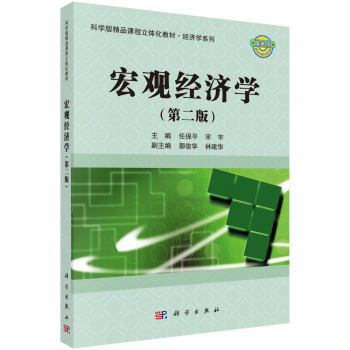

![丝绸之路经济带发展报告(2017) [Annual Report On Development Of The Silk Road Economic Belt(2017)] pdf epub mobi 电子书 下载](https://pic.windowsfront.com/12035995/58847a80N2ff28023.jpg)

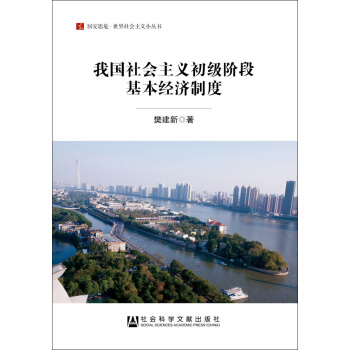

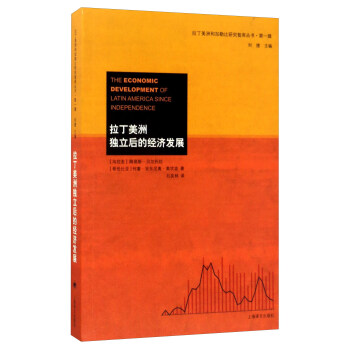
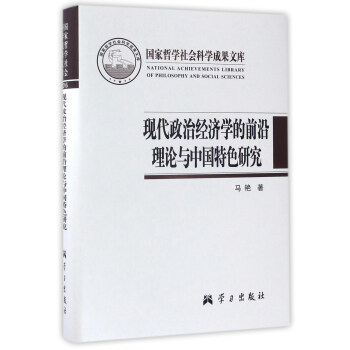
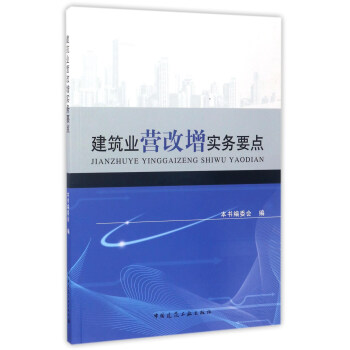

![产业大数据丛书:农村土地流转综合评估与大数据分析 [Comprehensive Evaluation and Big Data Analytics of Rural Land Transfers] pdf epub mobi 电子书 下载](https://pic.windowsfront.com/12147424/58c64460Nb1801040.jpg)


